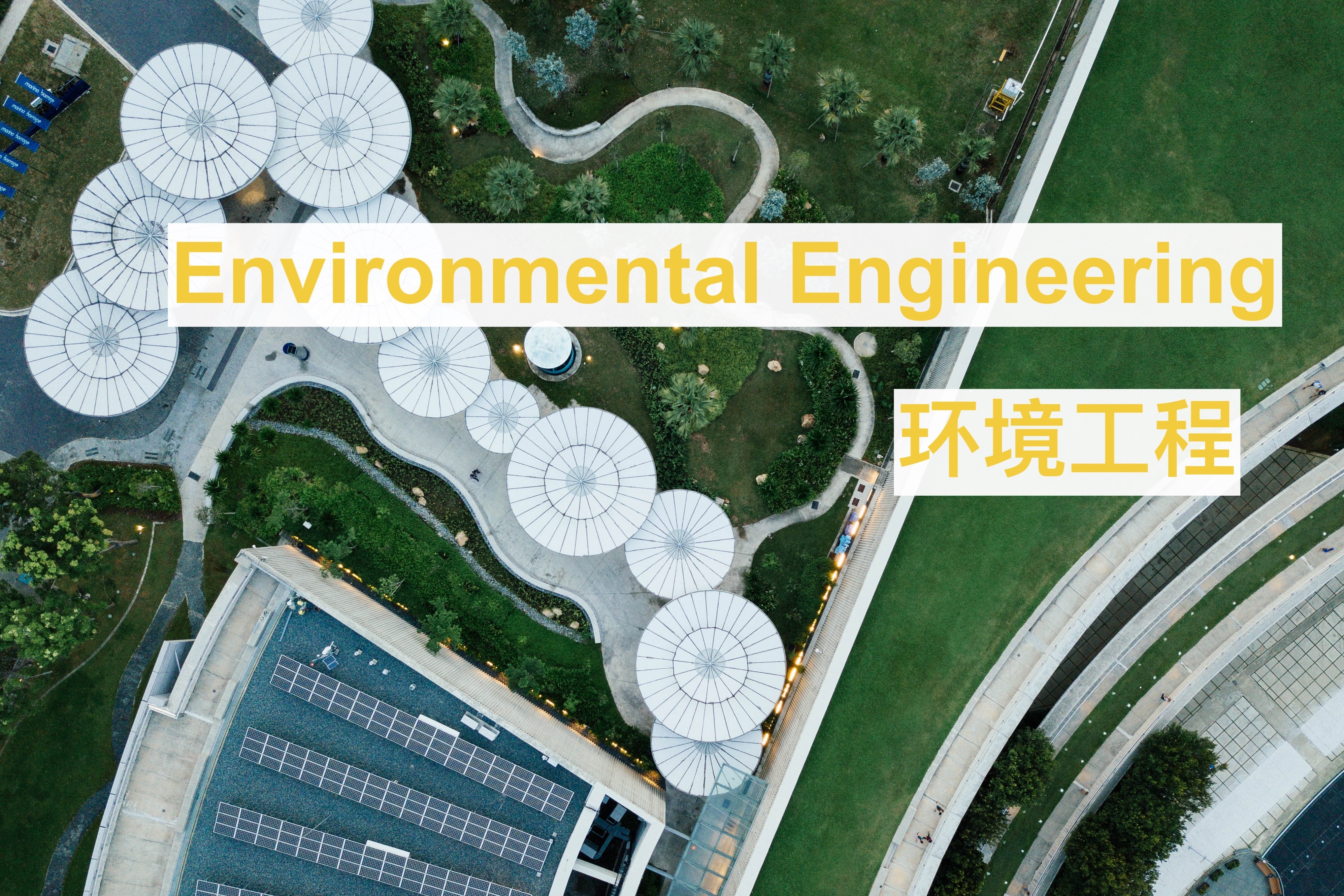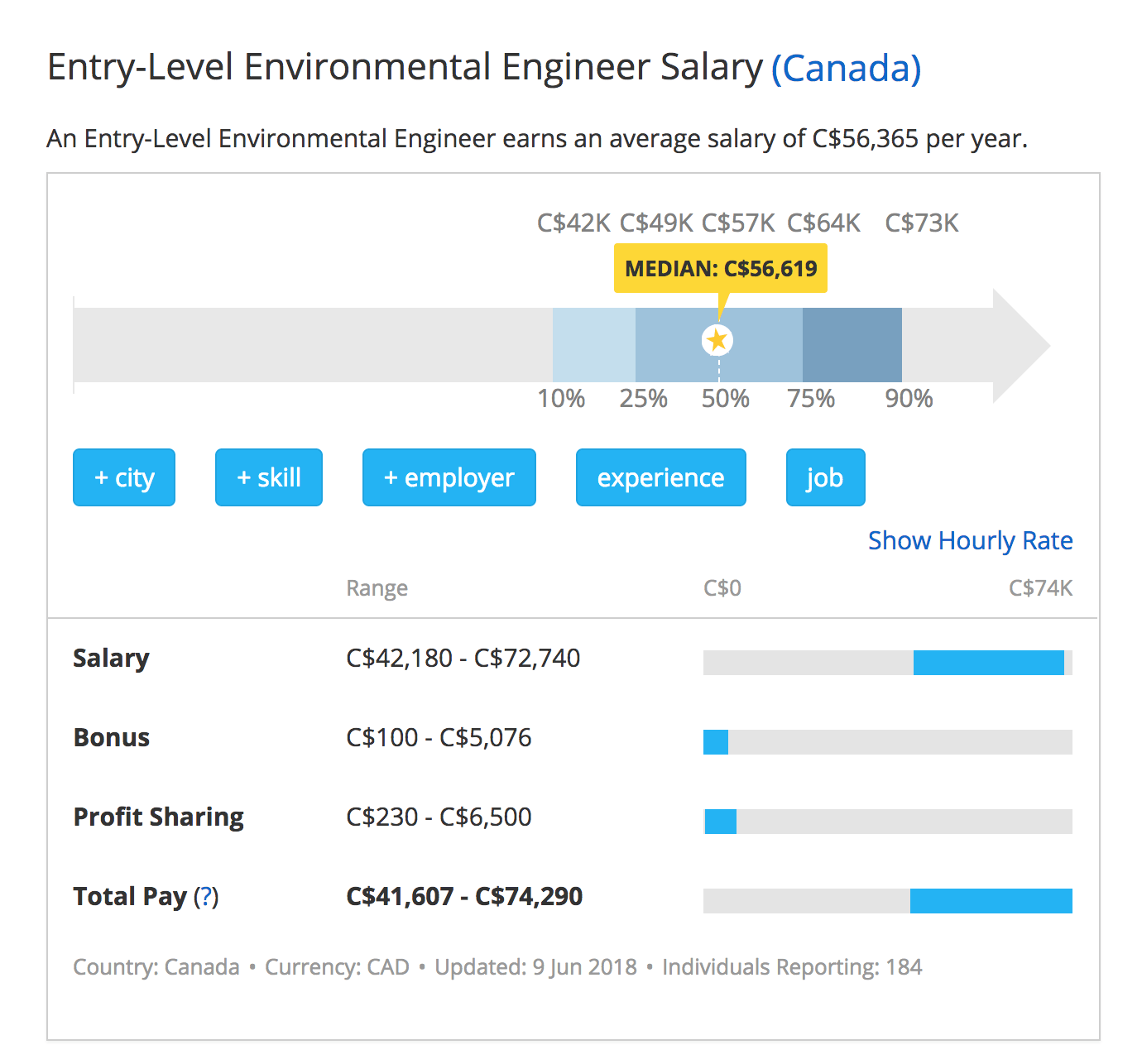[Guide] The responsibility of environmental engineers is to ensure that the development of our society can be carried out in a sustainable manner. So, what are the employment prospects of studying environmental engineering in Canada? This article will include the introduction of the Canadian environmental engineering major, annual salary, employment prospects, program rankings, professional skills taught, and the opinions of netizens and UtoCanada.
 Photo by chuttersnap on Unsplash
Photo by chuttersnap on Unsplash
Introduction to Canadian Environmental Engineering
Through the combination of theoretical courses and practice, the environmental engineering major enables students to understand the basic knowledge in engineering majors and improve their analytical and engineering capabilities. Environmental engineering is a professional practice to ensure that the development of our society can be carried out in a sustainable manner. In order to achieve the sustainable development, we must minimize the damage and pollution of our natural resources and the environment.
》Employment skills for environmental engineering graduates
Environmental engineering courses provide the knowledge base and skills needed in the career of environmental engineering, so that students can adapt to the rapid pace of development. As a graduate of this major, you will have gained the skills and knowledge in the following areas:
- General industrial process design;
- Design projects that lead to environmental protection, such as water reclamation facilities or air pollution control systems;
- The functions, processes and interactions of the main environmental systems of air, land, water and organisms;
- The basic concepts of surface water and groundwater heat, mass transfer processes, fluid dynamics, and treatment of pollutants in water;
- Engineering and environmental science foundation;
- Wastewater detection, analysis and treatment;
- Methods of preventing and controlling industrial pollution
Related articles of the engineering major:
Employment prospects of Canadian environmental engineering graduates
The ultimate goal of obtaining an environmental engineering degree is to enable you to solve environmental problems and become professionals in various environmental engineering-related fields. The most common employment direction for graduates of this major is to become environmental engineers. As an environmental engineer, you may participate in environmental impact assessment, design, distribution and management of the following facilities: wastewater treatment plants, solid waste treatment centres, landfills, and air treatment centres. So, the fields to enter may be resource industries, such as forestry, mining, pulp and paper, chemical processing, fisheries, agriculture, and oil and gas.
In addition to these fields, you can also choose to pursue careers in research, environmental technology, education, training and consulting.
Jobs for environmental engineering graduates
In summary, the ultimate goal of an environmental engineering degree is to enable you to solve environmental problems and become professionals in various environmental engineering-related professional fields. Below, we have selected occupations that we believe are directly related to this degree, or occupations with a large overlap of required skills:
- Agricultural Engineer
- Ecologist
- Environmental assessment analyst
- Environmental auditor
- Environmental consultant
- Environmental engineer
- Environmental engineering technician
- Environmental manager
- Environmental scientist
- Greenhouse operator
- Hazardous waste manager
- Hazardous waste technical expert
- Municipal environmental coordinator
- Park planner
- Waste water operator
- Waste water treatment engineer
- Water resources engineer
Special notes: Some of the occupations listed above require additional education, training and/or experience. For example, in Canada, to take on a government project, you must obtain the approval of a professional engineer (PE).
》Organisations employing environmental engineers:
Who recruits environmental engineering graduates? Here are some of the types of companies and organizations that typically employ environmental engineers:
- Construction and engineering companies
- Agricultural food producers and distributors
- Federal government departments (such as forestry, transportation, etc.)
- Provincial/state government departments (such as forestry, transportation, etc.)
- City government departments
- Energy companies (including oil and gas)
- Mining and timber companies
- Universities and colleges
- Non-profit organizations
- Conservation and environmental groups
- Chemical development and processing companies
Environmental engineering graduate salary: The decisive factors & annual income
The salary level of an environmental engineer may vary depending on factors such as education level, years of experience, company and industry, and the position.
Salary of environmental engineers in Canada:
- According to Service Canada, the average salary of environmental engineers is $72,700 per year.
According toPayScale statistics, the minimum annual salary for an entry-level environmental engineer in Canada is: $41,280
 (Source: PayScale)
(Source: PayScale)
》Three types of environmental engineering credentials: college diploma, undergraduate degree, graduate degree
Traditionally, Canadian environmental engineering credentials can be obtained in three ways:
- Specialist Diploma:generally 2-3 years
- Bachelor's Degree:generally 4 years to complete
- Graduate Degree:generally 2 years to complete
The best schools for environmental engineering
The environmental engineering degree is a type of engineering major. According toMacLean's latest program rankings of Canadian universities, the rankings of engineering programs are as follows:
1、University of Toronto (Engineering major)
2、University of Waterloo(Engineering major)
3、UBC(Engineering major)
4、University of Alberta(Engineering major)
5、McGill University(Engineering major)
6、University of Ottawa(Engineering major)
7、 Queen’s University(Engineering major)
8、Université de Montréal(University of Montreal Engineering major)
9、McMaster University(Engineering major)
10、University of Calgary (Engineering major )
11、University of Victoria (Engineering major)
12、Université Laval (Laval University - French institution)
13、Ryerson University(Ryerson UniversityEngineering major)
14、 University of Saskatchewan(University of SaskatchewanEngineering major)
15、Western University (Engineering major )
16、York University (Engineering major)
17、Dalhousie University (Dalhousie UniversityEngineering major)
18、Lakehead University (Engineering major)
19、Simon Fraser University(Engineering major)
20、Concordia University(Engineering major)
-
Summary: UtoCanada's views on the environmental engineering major
We cannot emphasize this enough: before choosing a major, you must make sure that you are truly interested in this subject and that you have potential in this area. After determining that you are suitable for this major, there are two areas of development that can increase your chances of getting your first job after graduation.
》Developing "soft skills" during the course of your studies – especially English proficiency
If you want to become an environmental engineer, in addition to professional skills, you would need many necessary soft skills in the workplace. Without these soft skills, it would be very difficult to perform many key job functions. These soft skills include: English proficiency; the ability to explain design concepts and plans clearly in writing and verbally; good team working skills; excellent logical thinking and problem-solving skills.
In the above, we have mentioned that the government, schools, and non-profit organizations hire environmental engineers.》Accumulating relevant work experience
Compared to academic qualifications, Canadian companies value skills and work experience more. If you have a look at the local discussion forums, you will find that even the inexperienced locals have trouble finding a job. So, it comes without a shock that as a foreigner who speaks "broken" English and lacks experience, you will not be hired. So, can we gain work experience during our studies? These experiences can be mainly gained through internships and volunteer opportunities.
During your studies (whether college or university), co-op or field placements are the best ways to accumulate professional experience. Therefore, you must take this into careful consideration when choosing a major.
If the school you choose does not have an internship, find a non-profit environmental organization for an internship opportunity.
Reference:
- https://collegegrad.com/careers/environmental-engineers
- https://www.academicinvest.com/engineering-careers/environmental-engineering-careers















